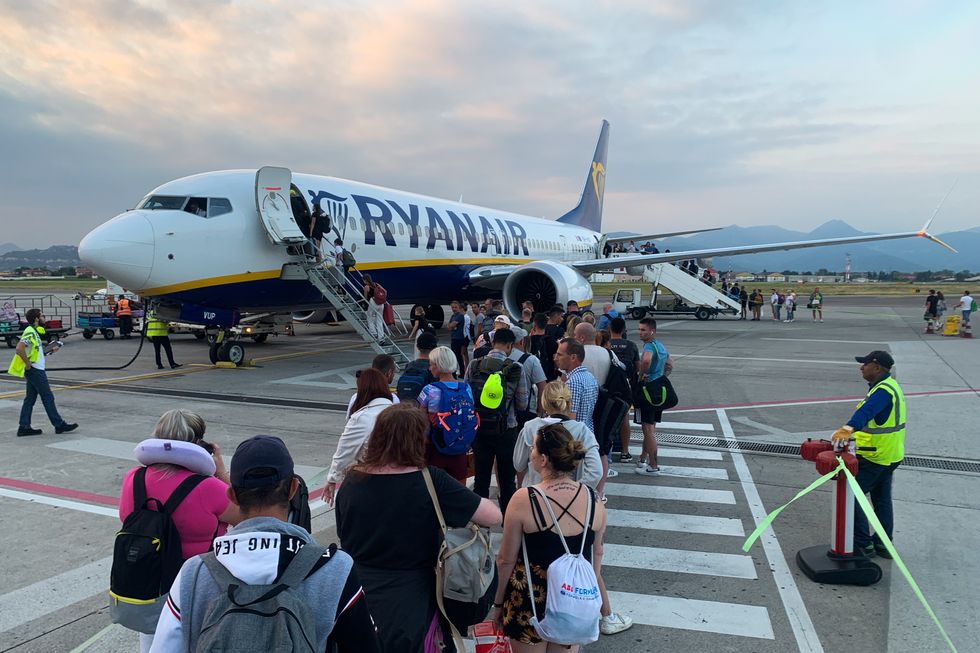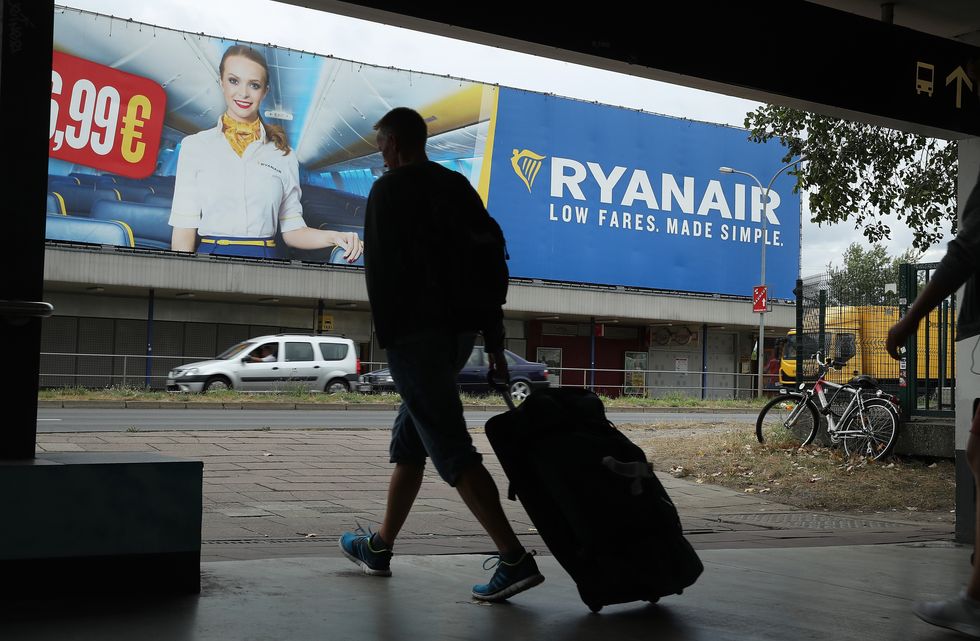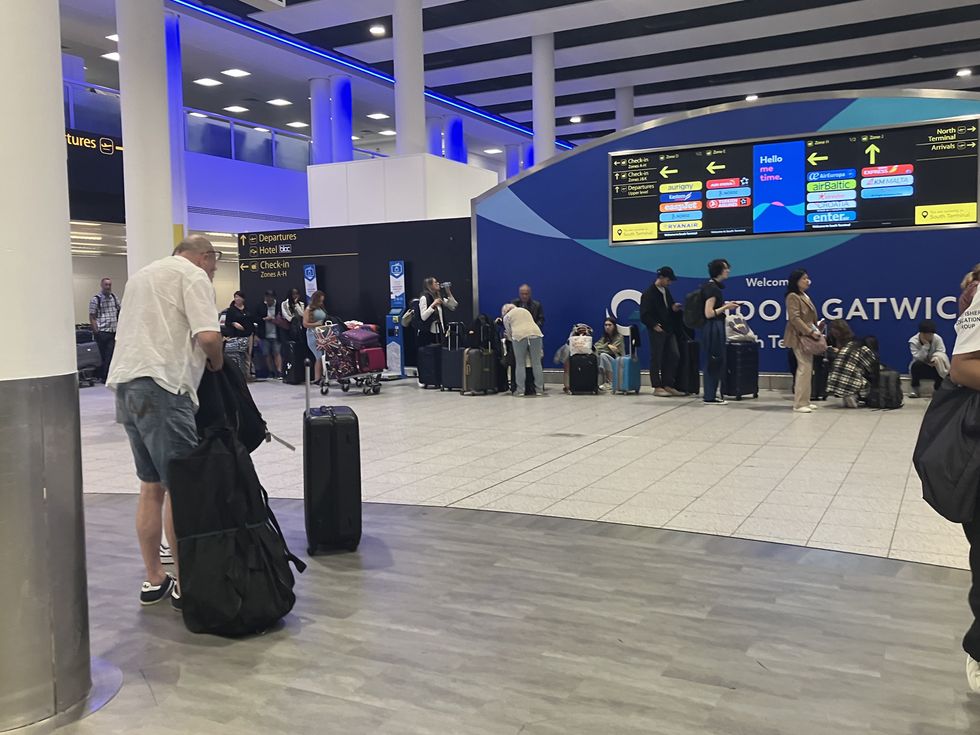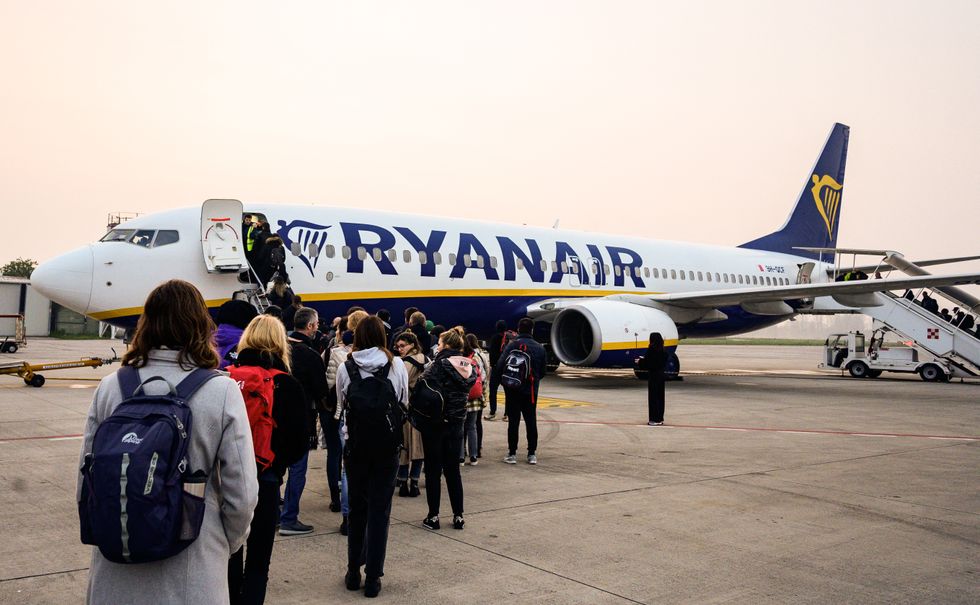Jack Walters
Guest Reporter
A determined passenger secured £220 in compensation from Ryanair after a three-and-a-half-hour flight delay by meticulously documenting evidence and challenging the airline's initial rejection.
The successful claim, achieved through aviation dispute service Aviation ADR, came after the passenger's careful recording of a pilot's announcement and time-stamped text messages.
Despite the passenger's efforts, around half of travellers who claim compensation from airlines face initial rejection.
The victory came after the September flight from Dublin to London was delayed from its scheduled 6.25pm departure until 9.50pm.

The passenger's ordeal began when arriving at Dublin airport at 5pm to find the flight already showing a delay of one hour and 45 minutes.
Ryanair staff initially attributed the delay to air traffic control problems.
The airline provided a €4 (£3.30) voucher after thirty minutes of waiting - enough only for two packets of crisps.
As the delay extended beyond two hours, Ryanair sent an automated email referencing passenger rights under EU261/2004 regulations.
The passenger maintained detailed records throughout, sending text messages to their boyfriend which created a timestamped record of events.
These messages later proved invaluable in precisely documenting take-off and landing times for the compensation claim.
LATEST DEVELOPMENTS:

The flight eventually departed at 9.50pm, more than three hours after its scheduled time.
When attempting to claim compensation the next morning through Ryanair's website, the passenger received an automatic rejection.
The airline cited "air traffic control restrictions" as an extraordinary circumstance beyond their control - a common defence used by airlines to avoid compensation payments.
However, the passenger recalled a crucial announcement made by the pilot on the tarmac.
The pilot had revealed that until shortly before departure, the aircraft had been scheduled for a Birmingham flight rather than London.
This information contradicted Ryanair's claim about air traffic control issues being the primary cause of delay.
The passenger's suspicions about the true cause of the delay prompted them to pursue the matter further through official channels.

The revelation about the aircraft reassignment would later prove decisive in securing compensation through Aviation ADR.
To challenge an airline's compensation decision, passengers must first file a complaint directly with the carrier and await their response.
Airlines have eight weeks to respond before passengers can escalate to an Alternative Dispute Resolution (ADR) service.
For Ryanair passengers, Aviation ADR provides a free dispute service, also covering airlines like easyJet, Wizz Air and TUI.
The Civil Aviation Authority website (caa.co.uk) helps passengers identify which ADR service covers their airline.
Through Aviation ADR's website, claimants must confirm they've complained to the airline and upload flight details and correspondence.
In this case, the ADR adjudicator found only 14 minutes of the delay was due to air traffic control, with the main cause being a late aircraft arrival.
The airline was given 30 days to confirm payment of the £220 compensation through the ADR portal.

Experts advise passengers facing flight delays to maintain detailed records of all announcements and timings.
Screenshots of airline rejection notices and correspondence should be saved as evidence for ADR claims.
Compensation amounts vary by flight distance, with journeys under 1,500km eligible for £220 in cases of delays over three hours.
Longer flights can qualify for up to £520 in compensation for significant delays.
The successful claimant emphasised the importance of not giving up after initial rejection.
Key evidence like pilot announcements and timestamped messages can prove crucial in challenging airline decisions.
The case demonstrated how airlines' claims of "extraordinary circumstances" can be successfully contested with proper documentation.
Passengers should particularly note any announcements about aircraft changes or operational decisions that contradict official delay reasons.
Find Out More...
The successful claim, achieved through aviation dispute service Aviation ADR, came after the passenger's careful recording of a pilot's announcement and time-stamped text messages.
Despite the passenger's efforts, around half of travellers who claim compensation from airlines face initial rejection.
The victory came after the September flight from Dublin to London was delayed from its scheduled 6.25pm departure until 9.50pm.

The passenger's ordeal began when arriving at Dublin airport at 5pm to find the flight already showing a delay of one hour and 45 minutes.
Ryanair staff initially attributed the delay to air traffic control problems.
The airline provided a €4 (£3.30) voucher after thirty minutes of waiting - enough only for two packets of crisps.
As the delay extended beyond two hours, Ryanair sent an automated email referencing passenger rights under EU261/2004 regulations.
The passenger maintained detailed records throughout, sending text messages to their boyfriend which created a timestamped record of events.
These messages later proved invaluable in precisely documenting take-off and landing times for the compensation claim.
LATEST DEVELOPMENTS:
- Ryanair passenger forced to pay £50 to board return flight after 'ridiculous' water bottle charge
- Ryanair passenger £286 'out of pocket' after being promised 'free flight' when pilot aborted landing
- Ryanair staff shocked to find CAT boarded flight minutes before takeoff sparking two days of delays

The flight eventually departed at 9.50pm, more than three hours after its scheduled time.
When attempting to claim compensation the next morning through Ryanair's website, the passenger received an automatic rejection.
The airline cited "air traffic control restrictions" as an extraordinary circumstance beyond their control - a common defence used by airlines to avoid compensation payments.
However, the passenger recalled a crucial announcement made by the pilot on the tarmac.
The pilot had revealed that until shortly before departure, the aircraft had been scheduled for a Birmingham flight rather than London.
This information contradicted Ryanair's claim about air traffic control issues being the primary cause of delay.
The passenger's suspicions about the true cause of the delay prompted them to pursue the matter further through official channels.

The revelation about the aircraft reassignment would later prove decisive in securing compensation through Aviation ADR.
To challenge an airline's compensation decision, passengers must first file a complaint directly with the carrier and await their response.
Airlines have eight weeks to respond before passengers can escalate to an Alternative Dispute Resolution (ADR) service.
For Ryanair passengers, Aviation ADR provides a free dispute service, also covering airlines like easyJet, Wizz Air and TUI.
The Civil Aviation Authority website (caa.co.uk) helps passengers identify which ADR service covers their airline.
Through Aviation ADR's website, claimants must confirm they've complained to the airline and upload flight details and correspondence.
In this case, the ADR adjudicator found only 14 minutes of the delay was due to air traffic control, with the main cause being a late aircraft arrival.
The airline was given 30 days to confirm payment of the £220 compensation through the ADR portal.

Experts advise passengers facing flight delays to maintain detailed records of all announcements and timings.
Screenshots of airline rejection notices and correspondence should be saved as evidence for ADR claims.
Compensation amounts vary by flight distance, with journeys under 1,500km eligible for £220 in cases of delays over three hours.
Longer flights can qualify for up to £520 in compensation for significant delays.
The successful claimant emphasised the importance of not giving up after initial rejection.
Key evidence like pilot announcements and timestamped messages can prove crucial in challenging airline decisions.
The case demonstrated how airlines' claims of "extraordinary circumstances" can be successfully contested with proper documentation.
Passengers should particularly note any announcements about aircraft changes or operational decisions that contradict official delay reasons.
Find Out More...
